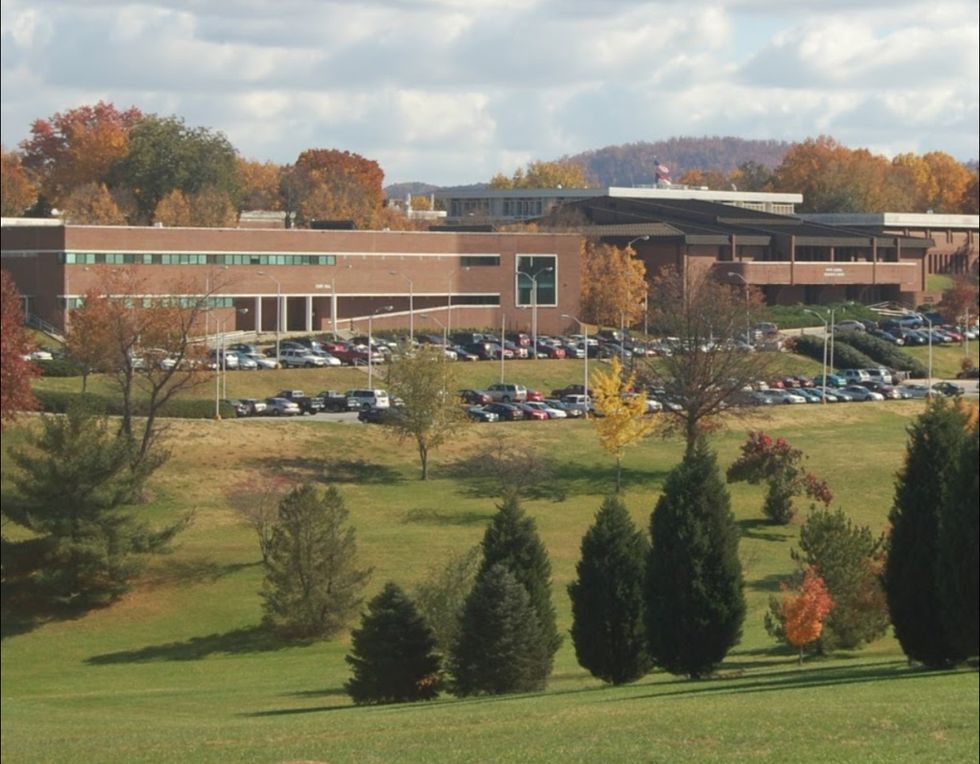I was a terrible high school student.
No, I mean it.
I barely cracked the top 50 percent of students in my graduating class of nearly 300. I didn't take the SAT and the only reason I took the ACT was because it became a requirement during my junior year, and even then I didn't bother studying for it (which would explain why I bombed it).
Couple that with my report cards being littered with Cs and Ds, and we begin to paint a pretty clear picture of why I had it in my mind that college wasn't the right fit for me. And to be honest, I was right. College wasn't for me. At least, not at that time in my life.
So, how in the world did I go from that to studying at the best university in the entire world (nope, no bias here)? Well, I have two words for you: community college.
Once I realized how important a college education is, I began looking into how a student of my caliber could go about obtaining one. I remember so vividly the giddiness that I felt when I saw that having an Associate's Degree waived the requirements of submitting any standardized test scores when applying to transfer into a four-year institution.
Thank goodness for that, because there was no way that I was going to get into any college once admissions offices saw how I performed on the ACT and in high school overall.
My experience at community college was nothing short of incredible. I was able to discover that I had a true passion for science, could actually comprehend what was going on in my classes and, most importantly, was able to learn that a college degree is absolutely attainable if you truly put in an effort.
Now, that's not to say that I, as well as most community college alums, haven't seen the stigma against community college that is pervasive in our society.
We are taught, almost innately, that community college is a place for burnouts. That it's just a continuation of high school. That it's just a place for crappy students to get a second chance at pursuing a college degree.
While the third stereotype actually does apply to me, it certainly doesn't apply to everyone. During my time at community college I met some of the smartest and brightest people that I have ever had the privilege of being around.
One of which earned an Associate's Degree in two semesters (no, you did not read that wrong) by taking 30+ credits from three separate community colleges, while working a part-time job and maintaining straight As. He's now in medical school. Oh yeah, he was also in his early 40s when he started.
The stigma that I experienced wasn't just perpetuated by society or those who look down on community college from afar, but also from within the community college itself.
Throughout my first year, I was fortunate enough to serve as the President of the Natural Science Club. Our school has an annual event that invites prominent figures in academia, organizations and movements to speak on campus called the "Fall Speakers Forum."
The year that I served as president, the school invited Dr. Tad Pfeffer, a professor and glaciologist at CU Boulder, who worked on the Emmy award-winning documentary, "Chasing Ice." Given the nature of Dr. Pfeffer's work, the Natural Science Club was tasked with hosting his lecture.
As part of Dr. Pfeffer's visit, our club advisor, club Vice President and myself were invited to eat dinner with Dr. Pfeffer and several of the top-tier administrators of the college.
At dinner, I was seated next to the wife of an administrator who I will not name, but I will emphasize that her husband has a major, major role at the college. The conversations went well enough, but at one point she asked me what I wanted to study and where I was hoping to transfer.
For the rest of my life I will never forget what she said to me when I told her, "UNC Chapel Hill." The expression on her face quickly shifted from smiling to serious as she remarked, "Oh... well, you know it's very competitive."
I managed to pick up my jaw from the floor and stammer out that I indeed knew how competitive getting into Carolina is, but that's precisely the reality that community college students have to face.
I also purposefully neglected to inform her that Dr. Pfeffer, the brilliant scientist she and all of the other administrators were brown-nosing, is the product of a community college education.
I mention this story not just because it's true, but to highlight how deep the stigma goes when it comes to making the choice to attend community college. How can an administrator of an institution make its students believe that they can go anywhere from there if their own spouse doesn't believe that?
Nevertheless, I would still choose to go to community college if I had the opportunity to do it all again. The lessons that I learned, relationships that I made and growth that I underwent cancel out any amount of negative experiences I had.
To anyone who chooses to go to community college to save money, because it's your only option (like it was mine) or for any other reason: do not let anyone make you feel bad for it.
Yes, it's going to be difficult. Yes, it's going to push you further than you knew you could go. And yes, you may have goals that are very competitive.
But trust me when I say, community college will make you competitive enough to achieve them.
















